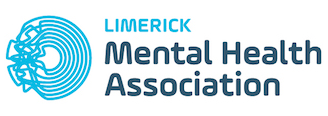
Mental health is an important aspect of overall well-being, and it can be affected by many factors, including hormonal fluctuations that occur during the menstrual cycle.
A menstrual cycle is a process that a woman’s body goes through each month to prepare for ovulation and pregnancy. This process is regulated by hormones, which are chemical messengers that travel through the bloodstream and communicate with various bodily systems.
With the involvement and fluctuation of multiple hormones, it is no surprise that the menstrual cycle has been linked to changes in mental health.
How the Menstrual Cycle Affects Mental Health
The menstrual cycle is a complex process that affects much more than just the reproductive system. The process includes an interaction of a number of hormones, including:
- Estrogen
- Progesterone
- Follicle Stimulating Hormone (FSH)
- Luteinizing Hormone (LH)
- Testosterone
The hormones play a role in regulating the menstrual cycle, which means that they can also affect your mental health when they’re out of balance and oscillating.
Some women may experience mental health changes throughout their menstrual cycle, while others only notice effects during certain phases of their cycles. Although each experience may be somewhat different, there are some common symptoms that can be linked to the menstrual cycle.
Premenstrual Syndrome
Premenstrual syndrome (PMS) is a temporary condition that many women experience before their periods. PMS is caused by changes in hormone levels, which may be due to the drop in estrogen that occurs in the days leading up to a woman’s period.
The most common PMS symptoms can include cramps, headaches, irritability, tension, mood swings, and depression. Although most cases of PMS tend to be mild, some women experience more severe symptoms that can cause significant discomfort and impact their quality of life.
Premenstrual Dysphoric Disorder
Premenstrual dysphoric disorder (PMDD) is a more severe variation of PMS. PMDD is characterized by a range of physical and psychological symptoms that occur during the luteal phase of the menstrual cycle, which is the week or two before the onset of menstruation.
PMDD symptoms are similar to those of PMS, but more extreme and can have a significant impact on daily activities and relationships.
Some of the symptoms of PMDD include:
- Depression or feelings of sadness
- Anxiety
- Irritability or anger
- Fatigue
- Difficulty concentrating
- Changes in appetite or sleep patterns
- Physical symptoms such as breast tenderness, bloating, and headaches
If you’re experiencing symptoms of PMDD, it’s important to talk to your doctor to determine the best course of treatment, which may include medication, therapy, or lifestyle changes.
Premenstrual Exacerbation
Premenstrual Exacerbation (PME) is a term used to describe a worsening of pre-existing mental health conditions, such as depression, anxiety, and bipolar disorder, during the premenstrual phase of the menstrual cycle.
Symptoms of PME can include:
- Worsening depression or anxiety symptoms
- Increased irritability or anger
- Difficulty concentrating or decision making
- Significant moodiness
- Headaches
What factors contribute to these disorders?
The exact cause of these conditions is not fully clear, but it is thought to be related to hormonal fluctuations that occur during the menstrual cycle.
It is believed that the symptoms of PMS and PMDD are caused by changes in the levels of hormones such as estrogen and progesterone, which can affect the brain and the levels of neurotransmitters such as serotonin and dopamine. These neurotransmitters play a role in regulating mood and emotions, and changes in their levels can lead to mood changes and other symptoms.
There are also other factors that may contribute to the development of PMS and PMDD, such as:
- Genetics: Some studies have suggested that certain genetic factors may make women more susceptible to PMS and PMDD.
- Stress: Stress can exacerbate symptoms of PMS and PMDD and can make the symptoms worse.
- Nutrition: Eating a diet that is high in sugar and caffeine, and low in essential nutrients can contribute to PMS and PMDD.
- Medical conditions: Some medical conditions such as thyroid disorders or diabetes can worsen symptoms of PMS and PMDD.
It’s important to note that every woman is unique and the cause of PMS and PMDD can vary from woman to woman. Therefore, it is suggested that a combination of multiple factors may contribute to the development of these conditions.
Ways to Cope with Mental Health Symptoms During Menstrual Cycle
The menstrual cycle is a natural process that every woman experiences. This makes it important to remember that there are many ways to cope with mental health symptoms during the monthly process, and the following are some of them:
- Keep a symptom diary: Keeping track of symptoms can help women understand the patterns of their symptoms and identify triggers.
- Exercise: Regular exercise for mental health has been shown to improve mood and reduce stress, which can help reduce the intensity and frequency of symptoms.
- Diet: Eating a healthy, balanced diet and staying hydrated can help regulate hormones and improve overall well-being. Avoiding foods that can trigger symptoms, such as caffeine, sugar, and alcohol is also recommended.
- Stress management: Stress can exacerbate symptoms, so it is important to find ways to manage stress, such as through meditation, yoga, or other relaxation techniques.
- Sleep: Getting adequate sleep is important for overall well-being and can help reduce the symptoms.
- Medication: For some women, medication may be necessary to manage severe symptoms of PMS or PMDD. Birth control pills, which regulate hormone levels, can be effective in reducing symptoms.
- Therapy: therapy can help you understand the underlying causes of symptoms and develop coping mechanisms.
It’s important to note that it’s not one size fits all, different coping strategies might work for different women, and it’s important to try different strategies and see what works best for you.
In Summary
While the effects of the menstrual cycle on mental health are not well understood, it is important to be aware of the potential effects that it may have on your mental and physical health.
Hormonal fluctuations during this time can cause mostly negative changes in mood, energy levels, and cognitive function. In some cases, these changes may be severe enough that they require medical intervention.
However, the menstrual cycle is a natural phenomenon, and recognizing what these changes do for you, and don’t, can help you manage health conditions more effectively.
